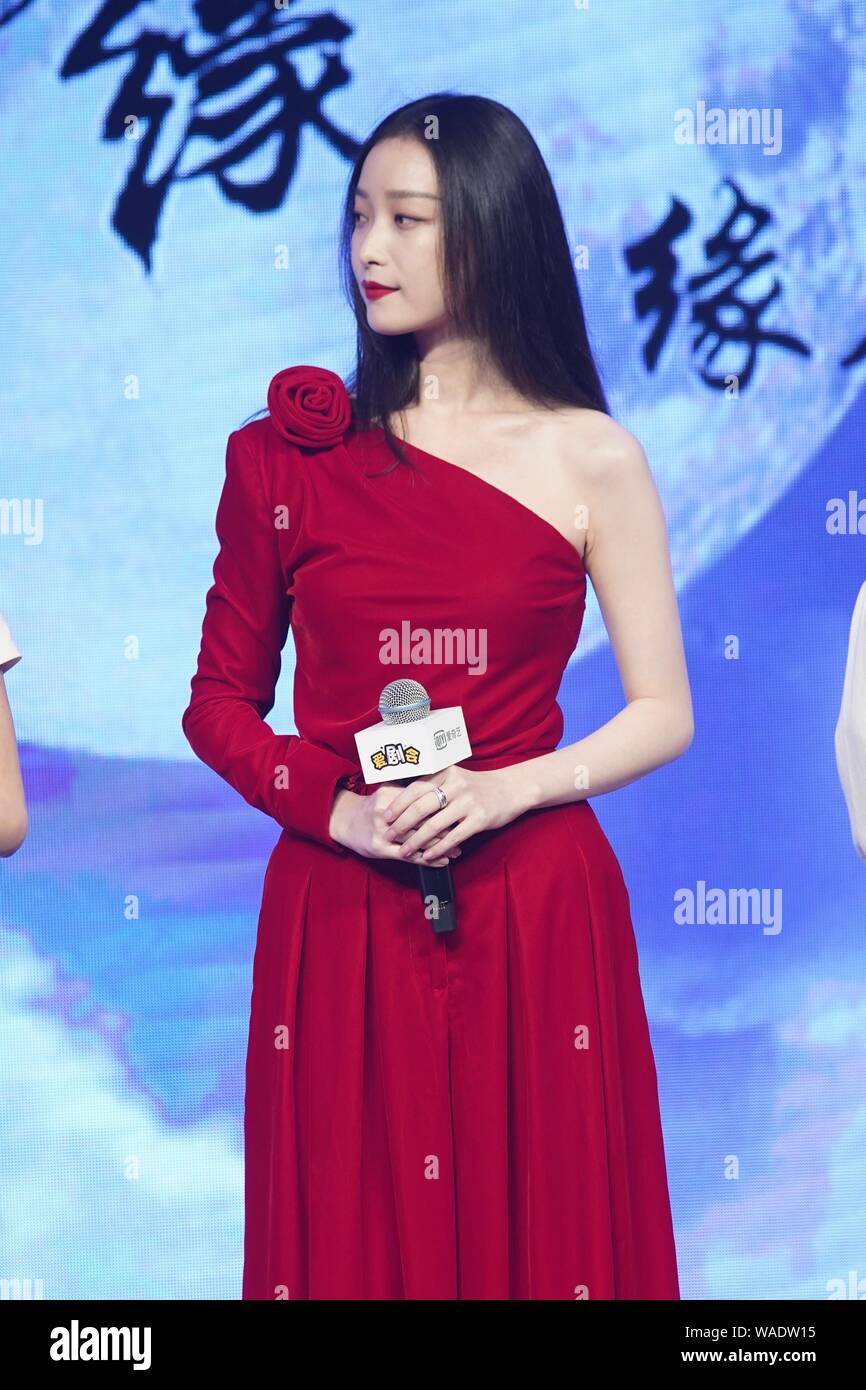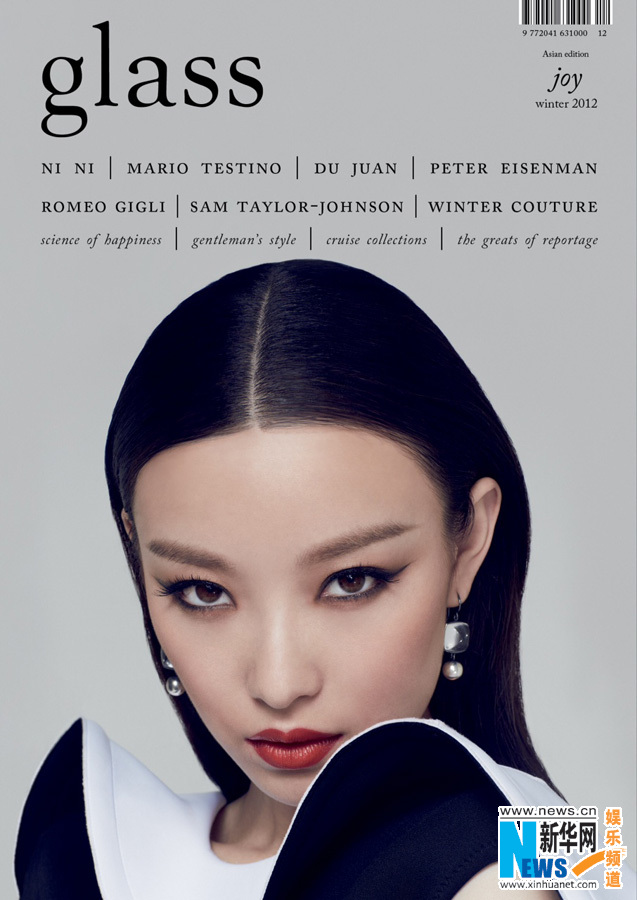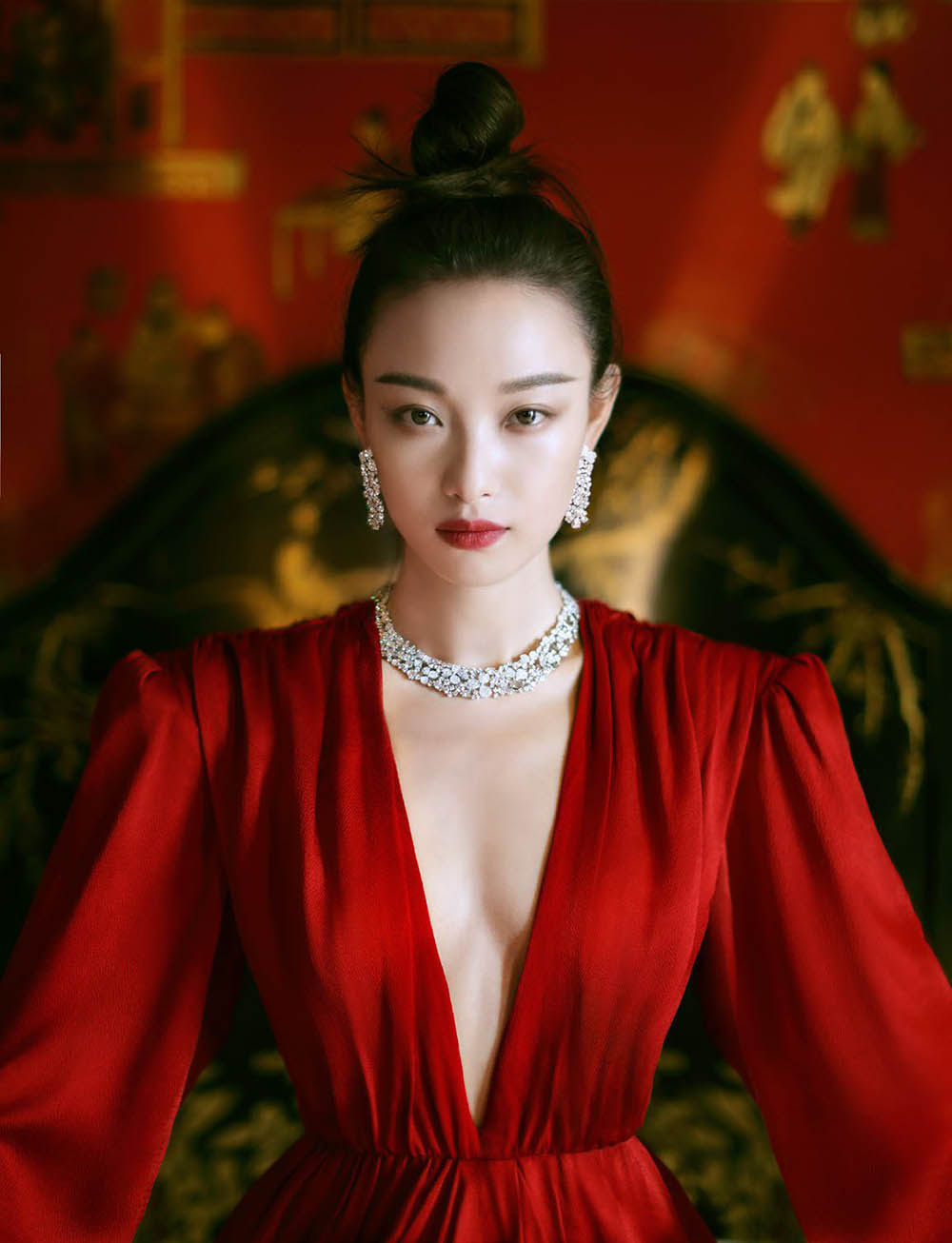
Ni Ni and the boys for Cosmo Bride Asian beauty, Popular short
English translations. you, 2nd person singular. Chinese character and stroke order animation. : speed: 2. The traditional Chinese characters of nĭ are identical with the modern (simplified) characters displayed above. Chinese Pinyin example sentence with 你 ( ni / nĭ ) ⓘ.

Chinese actress Ni Ni attends a press conference for TV series "Love
你 (nǐ) is a Chinese character meaning "you". You can learn it at http://www.trainchinese.com or in our apps - just search "trainchinese" in the iOS or Androi.

Seductively charming!Chinese actress Ni Ni poses of British fashion
Radicals in this Character. 亻 rén man. ⺈ N/A N/A. 小 xiǎo small. Pinyin. Yale. Jyutping. English Definition for Chinese Text. ni3.

Chinese actress Ni Ni poses for fashion shoots Culture News CQNEWS
Chinese Pinyin example sentence with 您 ( nin / nín ) ⓘ Writing in Pinyin Before using this Pinyin example sentence, consider that Chinese characters should always be your first choice in written communication. If you cannot use Chinese characters, it is preferable to use the Pinyin with tones.Only use the Pinyin without tones if there's no other option (e.g. writing a text message from/to.

Asia's most fashionable face ranked first Ni Ni Page 31 of 31
Chinese Pinyin example sentence with 你好 ( ni hao / nĭ hăo ) ⓘ Writing in Pinyin Before using this Pinyin example sentence, consider that Chinese characters should always be your first choice in written communication. If you cannot use Chinese characters, it is preferable to use the Pinyin with tones.Only use the Pinyin without tones if there's no other option (e.g. writing a text.

3 Reasons Why Chinese Actress Ni Ni Should Be Your New Obsession E! News
Hotel Ni Among優惠盡在Agoda,查看過百萬心水Hotel真實評價!. 立即預訂可慳更多,Agoda®一直保證最低價!

Polltab Most Pretty Asian Actress Fan Choice Voting Contest 2021/22
3. Use 呢 (ne) to Express Curiosity (in a Good Way) You can use 呢 (ne) in a choice question or open question in Chinese to emphasize that you are curious, interested, happy, or eager to find out the answer. It produces a casual, relaxed, and friendly tone to the question.

Chinese actress Ni Ni
What does 你 (Nǐ) mean in Chinese? English Translation. you. More meanings for 你 (Nǐ) you pronoun. 您, 你们, 侬, 尔. thee.

Ni Ni dances for TRENDSHEALTH
Translingual: ·(chiefly Taiwanese Mandarin)you (singular, female)··Extended shinjitai form of 嬭

Chinese actress Ni Ni Attrici
Learn when to use "你(nǐ)" and "您(nín)" in online Chinese classes. Got questions? Take a FREE 1-on-1 online Chinese class now!

Chinese actress Ni Ni China Entertainment News Pinterest
Learn more details about 你好 Chinese character and share your story, photos and comments about it. Also check out the example sentences for the character 你好 - Chinese Character Detail Page

Pin on Actress ni ni
Here are a few additional tips to help you confidently say "ni" in Chinese: Pronunciation: Pay careful attention to the "n" sound in "ni." It should not be pronounced as a "d" sound, but rather as a soft "n" sound. Tone: Chinese is a tonal language, so ensure you use the correct tone when pronouncing "ni." In Mandarin.

Ni Ni covers L’Officiel Singapore September 2018 by Chen Man
Learn how to write 您. 您 (nín) is a Chinese character meaning "you (respectful form)". You can learn it at http://www.trainchinese.com or in our apps - just s.

Chinese actress Ni Ni Asian Celebrity Pinterest Actresses and Chinese
Wrap-up: 'Nei Ge' in Chinese 'Nei ge' literally means 'that' or 'that one' in Chinese, but the word is widely used in daily speech by native speakers as a way to stall for time when they're hesitating or trying to figure out what to say next. You can place 'nei ge' as a filler word just about anywhere in a Chinese sentence.

Pinterest Colorful dresses, Asian celebrities, Celebrity outfits
The informal way to say "you" in Chinese is 你 (nǐ). This form of "you" is casually used to address friends, peers, anyone you have a close relationship with, and typically people who are younger than you. The formal version of "you" is 您 (nín). 您 should be used when addressing elders, respected figures, and persons of higher rank or status.

Pin on Ni ni 倪妮
After graduating from East China Normal University in 2005, Vera Zhang (张晓丽) started her career in teaching Chinese as a second language. Her first teaching job was teaching high school Chinese in Philippines and realized how much she loved this job. In 2007, she came back Shanghai and spent 7 years in ChinesePod.